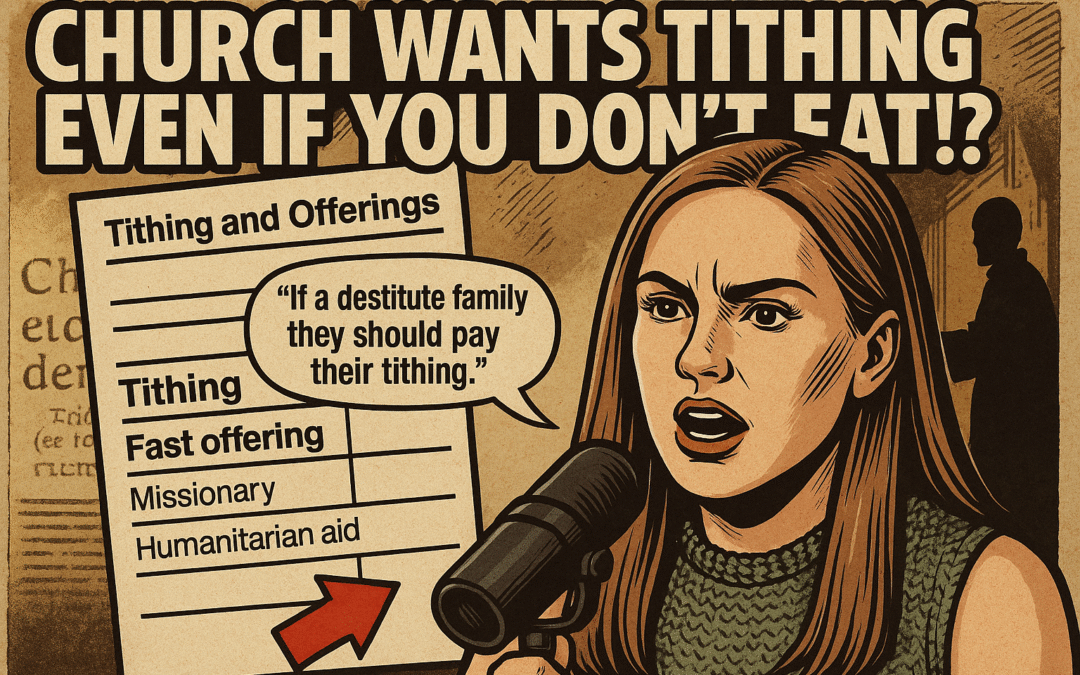Bottom Line
Quoting a devotional metaphor without its full spiritual context misrepresents both the doctrine and the practice. The Church teaches sacrifice — not starvation. And compassion is the rule, not cruelty.
| Podcast | YouTube – Alyssa Grenfell |
|---|---|
| Episode | “How the Mormon Church Secretly Built a $293 Billion Fortune” |
| Category | Tithing Doctrine & Poverty |
| Quote | “If a destitute family is faced with the decision of paying their tithing or eating, they should pay their tithing.” — Narrator quoting Elder Lynn G. Robbins, 00:01:00 |
| Core Claim | The LDS Church encourages starving members to pay tithing before buying food, regardless of personal need. |
| Conclusion | Partial Truth / Doctrinally Isolated & Out-of-Context Quote |
| Logical Questions |
|
🔍 Core Finding
The quote is real, but it’s not policy. Elder Lynn G. Robbins used it in a sermon to teach faith during hardship, not to promote starvation. The Church’s actual welfare system is built on feeding the hungry — not testing them.
📖 What Elder Robbins Actually Said
“If a destitute family is faced with the decision of paying their tithing or eating, they should pay their tithing.” “But they should also go to their bishop for help.”
— GC, Apr. 2005
🧾 Church Policy vs. Sermon Metaphor
- Bishops are instructed to help the poor regardless of tithing status.
- Tithing is voluntary and not enforced by penalty.
- Fast offerings and humanitarian funds exist to meet basic needs.
📚 Sources
- Elder Lynn G. Robbins, GC Apr. 2005
- Church Handbook: Welfare Principles
- Doctrine & Covenants 42:30–31; Malachi 3:10
- Mormoner.org – Tithing & Worthiness

